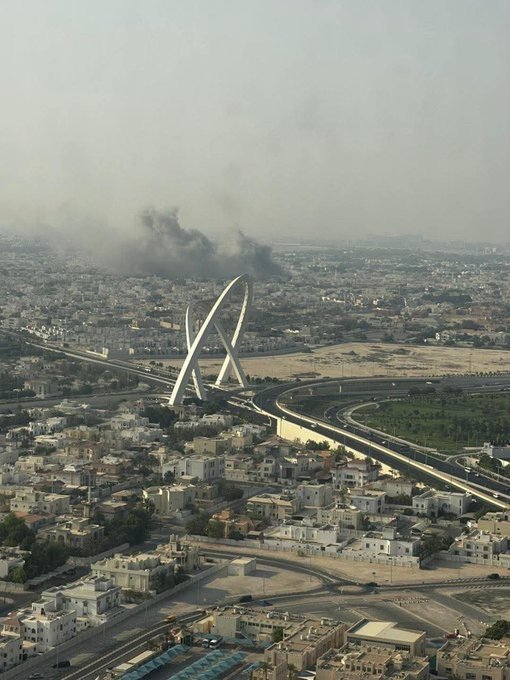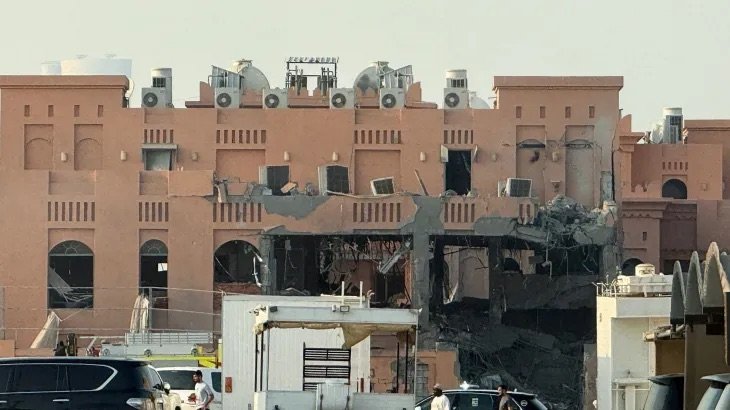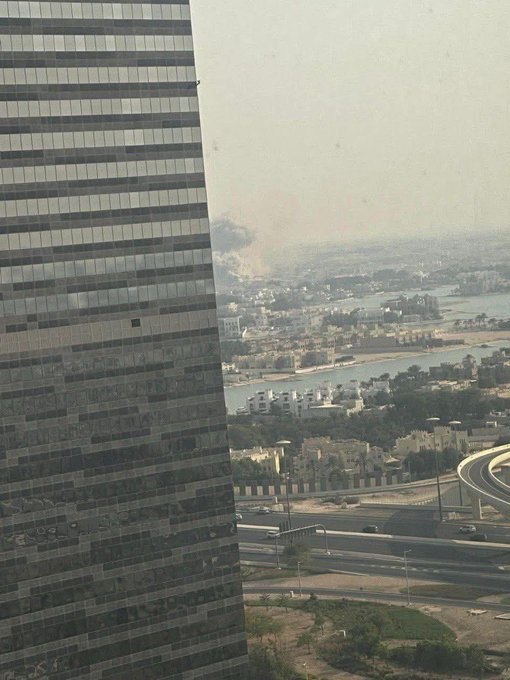A sudden Israeli strike on a residential area in Doha, the capital of Qatar, has sparked global outrage, with governments and international organizations denouncing the attack as a grave violation of sovereignty and international law. The strike, which Israel claimed targeted a Hamas negotiating delegation, instead hit a residential compound, killing civilians and undermining fragile ceasefire mediation efforts.
Saudi Arabia was among the first to react, with Foreign Minister Prince Faisal bin Farhan bin Abdullah calling Qatari Prime Minister and Foreign Minister Sheikh Mohammed bin Abdulrahman Al Thani to reaffirm Riyadh’s “full support” for Doha. The Saudi Ministry of Foreign Affairs condemned the strike as a “criminal act” and warned of “grave consequences” should Israeli aggression continue.
The White House issued a rare rebuke of Israel, with spokesperson Karoline Leavitt acknowledging that the U.S. military had notified the Trump administration of Israel’s planned strike. “Unilaterally bombing inside Qatar, a sovereign nation and close ally of the United States that is working very hard and bravely taking risks with us to broker peace does not advance Israel or America’s goals,” she said. Leavitt revealed that President Trump had directed special envoy Steve Witkoff to notify Qatari authorities, but Qatar’s government later clarified that the call came only as explosions were already shaking Doha.
Qatar has since suspended its mediation efforts with Israel, a move that threatens to derail ongoing ceasefire talks aimed at ending the Gaza war.
The Republic of Türkiye strongly condemned the strike, accusing Israel of seeking “the continuation of war, not peace,” and labeling the attack proof of “expansionist policies” and “state terrorism.” Venezuela went further, branding the assault “an act of state terrorism” and “a challenge to peaceful coexistence between nations.”
In Europe, French President Emmanuel Macron called the bombing “unacceptable, whatever the reason,” while pledging solidarity with Qatar and its Emir, Sheikh Tamim bin Hamad Al Thani. UK Prime Minister Keir Starmer denounced the attack as a “flagrant violation of sovereignty,” with Foreign Secretary Yvette Cooper warning that the strikes risk “setting back negotiations for a ceasefire, which is the only path to lasting peace.” Switzerland described the assault as a “clear and unacceptable violation” of international law and urged dialogue. UN Secretary-General Antonio Guterres stressed that “everyone must work towards achieving a permanent ceasefire, not destroying it,” while praising Qatar’s mediation efforts in recent hostage negotiations.
Azerbaijan also expressed concern, calling for prioritizing diplomacy to safeguard stability in the region. Meanwhile, the International Union of Muslim Scholars condemned the targeting of Doha’s residential compound as a crime against civilians.
Uzbekistan also joined the growing list of nations condemning the assault, describing Israel’s strike on a residential area in Doha as “a breach of sovereignty and an encroachment upon the inviolability of borders and security of the State of Qatar.” Tashkent stressed that such actions represent a “serious disregard for the UN Charter and international law,” reaffirming its principled stance against the use of force in international relations and warning that escalation will only worsen the already fragile situation in the Middle East.
Somalia also issued a firm statement, condemning what it described as “terrorist military actions” by Israel against residential areas in Doha. Mogadishu stressed that the strikes violated the sovereignty of the “brotherly State of Qatar” and deliberately targeted innocent civilians in clear contravention of international conventions and norms.
Somali President Hassan Sheikh Mohamud also held a phone conversation with Qatari Emir Sheikh Tamim bin Hamad Al Thani, during which he conveyed condolences over the victims of the “heinous Israeli aggression” in Doha. He reaffirmed Somalia’s unwavering solidarity with Qatar in defending its sovereignty and security, stressing that such violations contravene the UN Charter, threaten regional stability, and undermine peace efforts. Somalia joined the international community in calling for restraint, adherence to international law, and a permanent ceasefire to achieve justice and lasting peace in the Middle East.
Turkish President Recep Tayyip Erdoğan also held a phone call with Qatari Emir Sheikh Tamim bin Hamad Al Thani to discuss the Israeli strike. Erdoğan condemned the attack as a deliberate attempt to deepen conflict, tension, and instability in the region, calling it a “flagrant violation” of Qatar’s sovereignty. Extending condolences for those killed, he pledged that Türkiye “stands by the state and people of Qatar with all its means.” Both leaders agreed to coordinate closely to push for an immediate end to the ongoing massacre in Gaza.
Iran also condemned the strikes, with Deputy Foreign Minister Abbas Araghchi declaring that Israel had “heinously done what Iran would never contemplate: attacking the dear people and government of Qatar.” He stressed that the assault on urban residences housing civilian guests was an “illegal attack” that killed a Qatari citizen and several Palestinians while injuring others. Extending condolences, Araghchi said the “only way to decisively address the recklessness of the Israeli regime is for the Muslim world to act in unison,” adding that Iran stands ready to deepen cooperation in confronting threats to international peace and security.
Canada also condemned the strikes, with Foreign Minister Mark Carney calling them “an intolerable expansion of violence and an affront to Qatar’s sovereignty.” He warned that, regardless of intent, such actions “pose a grave risk of escalating conflict throughout the region and directly imperil efforts to advance peace, secure the release of all hostages, and achieve a lasting ceasefire.” Carney praised Emir Sheikh Tamim bin Hamad Al Thani’s role as “highly constructive” in ongoing mediation efforts.
Jordan’s Deputy Prime Minister and Foreign Minister Ayman Safadi delivered one of the strongest condemnations yet, declaring full solidarity with Qatar against what he called “Israeli aggression.” Safadi described the strike as “a blatant violation of international law and a dangerous escalation that pushes the region further towards the abyss of more conflict.” He urged the international community to recognize the grave consequences of allowing Israel to “act above the law and commit crimes with impunity,” insisting that Israel must be held accountable and “stopped” before its actions further endanger regional and global peace. Safadi called on the UN Security Council to “fulfill its mandate and act now to end the criminal and destructive acts of a rogue Israeli government.”
In Washington, U.S. Senator Bernie Sanders blasted the Israeli strike, accusing Prime Minister Benjamin Netanyahu’s “extremist government” of being “completely out of control.” Sanders said, “Not only are they starving children in Gaza, they are now breaking international law by dropping bombs on Qatar, a U.S. security partner. When is enough, enough?” He reiterated his longstanding position of cutting military assistance, declaring: “No more U.S. military aid to Israel.”
The attack has prompted heightened security measures, with the U.S. Embassy in Qatar urging all American citizens to shelter in place. Analysts warn the strike risks igniting a broader regional confrontation, as Israel’s actions threaten to pull mediating states directly into the conflict and destabilize the Gulf.


